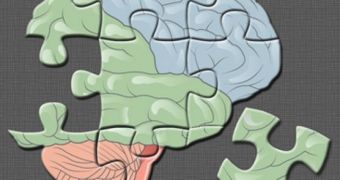A team of American researchers was finally able to provide proof that adult people who suffer from autism have hindered theories of mind, as in the impaired ability to infer what other people are thinking and feeling. This makes social contact awkward and difficult.
One of the main things that allowed our society to make it to the top of the food chain, and make itself the ruler of the whole world, is the fact that individuals were able to communicate with each other, both verbally and non-verbally.
Theory of mind is the art of putting yourself in someone else's shoes, see things from their perspective, and infer when that person is sad, happy, angry, scares, confident, in need of attention and so on.
Autism researchers have been saying that people suffering from this condition are unable to exert theory of mind since the mid-1980s, but no group was able to prove this scientifically since then.
Neuroscientists at the Massachusetts Institute of Technology (MIT) were now able to make important headway into this field of research, when they demonstrated that adult autism patients cannot really make moral judgments using theory of mind in specific situations.
MIT postdoctoral associate Liane Young explains that her team demonstrated that adult autism patients tend to blame people more for causing unintentional harm to someone else. Whereas healthy individuals judge the situation based on intention, autistic people judge it based on the final outcome.
Young is also the lead author of a new research paper detailing the findings, which appears in the January 31 online issue of the esteemed journal Proceedings of the National Academy of Sciences.
“There’s no normative truth as to whether accidents should be forgiven. The pattern with autistic patients is that they are at one end of the spectrum,” the scientist notes. The other paper coauthor was former MIT postdoctoral associate Joseph Moran, who now works at Harvard.
“The study uses a novel test, the judgment of intentions in moral vignettes, to probe the theory,” explains University College London (UCL) Institute of Cognitive Neuroscience professor of psychology Uta Frith.
“It is an excellent test because it detects poor mentalizing even in individuals with mild autism spectrum disorder who have learned to compensate for their difficulties in understanding mental states,” adds the expert, one of the first to link autism to impaired theory of mind.

 14 DAY TRIAL //
14 DAY TRIAL //